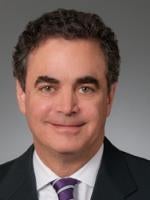1. Sender Primary Liability for Misstatements in PPMs and Prospectuses: Lorenzo v. SEC (No. 17-1077 -- U.S. – 2019).
On March 27th, the Supreme Court issued a 1934 Act Rule 10b-5 opinion that will have implications for sponsors of private funds and their placement agents. By way of reminder, in Janus Capital Group Inc. v. First Derivative Traders, 546 U.S. 135 (2011), an investment adviser drafted a false statement in a mutual fund prospectus was held not liable under Rule 10b-5(b) (which prohibits making any untrue statement of material fact). The Court held that the investment adviser did not make the false statements.
In Lorenzo, the only conduct involved was a false statement: an individual broker was found to have sent e-mails at the direction of the broker’s immediate boss that the broker understood contained material untruths about an issuer. The Court held that an individual who disseminates false statements with intent to defraud is liable for those misstatements under Rule 10b-5(a) (applicable to any device, scheme or artifice to defraud) and Rule 10b-5(c) (applicable to engaging in any act, practice or course of business that would operate as a fraud).
Observation: Advisers and brokers might be advised to assume that they may be liable (under certain circumstances) for misstatements in fund offering materials under Rule 10b-5(a)/(c). The decision in Lorenzo also bespeaks caution if and when brokers avail themselves of new 1933 Act Rule 139(b) (providing a safe harbor from 1933 Act Section 12(a)(2) liability for covered fund research reports).
2. No-Action Relief Granted to Stable Value Fund that Accepts Puerto Rico Retirement Plan Investors.
The SEC staff granted no-action relief to a bank stable value fund that accepted assets of a Puerto Rico retirement plan. The staff granted relief under the Investment Company Act, the Exchange Act and the Securities Act. John Hancock Stable Value Fund, SEC No-Action Letter (Pub. Avail March 29, 2019).
Observation: It would appear that bank collective investment funds might now consider accepting assets from Puerto Rico plans that that have previously turned away.
3. Staff Seeks Industry Input on Digital Assets and Non-DvP Trading Under Advisers Act Custody Rule.
The SEC staff issued a letter on March 12, 2019 to the Investment Adviser Association seeking industry input on the Advisers Act custody rule regarding the implications of trading in securities that do not settle on a delivery vs. payment basis and with respect to the custody of digital assets.
In this context, the staff reiterated its concerns with non-DvP arrangements and noted the duty of investment advisers to safeguard client assets against misappropriation. The staff points advisers to their Rule 206(4)-7 compliance policies and procedures, suggesting that they should address trade settlements on a non-DvP basis. See, Engaging on Non-DVP Custodial Practices and Digital Assets (Investment Advisers Act of 1940: Rule 206(4)-2 (March 12, 2019).
Observation: Accordingly, it would appear that advisers that trade in non-DvP markets and/or in digital assets should review their compliance policies and procedures to consider if they adequately address safeguarding client assets from misappropriation when placing non-DvP transactions.
4. Relief for Mutual Fund Directors in Person Meeting Requirements.
The SEC staff has granted no-action relief from certain Investment Company Act in-person board meeting requirements, where an in-person meeting would be unduly burdensome and unnecessary to assure investor protection. Flexibility was granted where either (1) the need to renew an agreement was on an emergency basis, and where no material change was proposed and the action was ratified at the next in-person meeting or where the matter was previously discussed at an in person meeting, but not voted on, until a follow up telephonic meeting or (2) the directors needed for the required approval previously fully discussed and considered all material aspects of the proposed matter at an in-person meeting, but did not vote on the matter at that time, provided that no director requests another in-person meeting. Relief was granted under Investment Company Act of 1940 Sections 12(b), 15(c) and 32(a) and Rules 12b-1 and 15a-4. See, Independent Directors Council, SEC No Action Letter (Pub. Avail February 28, 2019).
Observation: Investment Company Boards might now consider the benefits of two-step meetings to approve renewal of contractual arrangements, the first in-person, and the second telephonically, so as to enhance the robust nature of their review.
5. Rule Proposal to Modernize Registered Closed-End Fund, Interval Fund and BDC Registration Process.
Comments Due: May 18, 2019.
On March 20, 2019, the SEC proposed to modernize the registration statement process for closed end funds and BDCs as mandated by the Small Business Credit Availability Act, Pub. L. No. 115–141, 132 Stat. 348 (2018) (“BDC Act”) and by the Economic Growth, Regulatory Relief, and Consumer Protection Act (the “Registered CEF Act”). The SEC proposes to: (1) streamline the registration process to allow eligible affected funds to use a short-form shelf registration statement to sell securities “off the shelf”; (2) allow affected funds to qualify as “well-known seasoned issuers” (“WKSIs”) under rule 405 under the Securities Act; (3) allow affected funds to satisfy final prospectus delivery requirements using the same method as operating companies; (4) allow affected fund to use communication rules currently available to operating companies, such as the use of certain factual business information, forward-looking information, a “free writing prospectus,” and broker-dealer research reports; and, tailor the disclosure and regulatory framework for affected funds; and a proposal to require interval funds to pay securities registration fees using the same method that mutual funds and exchange traded funds use.
6. Relief for Filers of Form N-Port – Interim Final Rule Adopted
On February 27th, the SEC responded to cybersecurity/hacking concerns relating to mutual fund data filed on Form N-PORT. Form N-PORT’s record retention requirements became effective for larger fund groups on June 1, 2018 (with EDGAR filing delayed until April 1, 2019) and will become effective for smaller fund groups on June 1, 2019 (with EDGAR filing commencing April 30, 2020). The interim final rule amending Rule 30b1-9 and Form N-PORT became effective on March 6, 2019.
Observation: Registered funds that commenced EDGAR filing April 1, 2019 may file non-public reporting of monthly data – filing quarterly, no later than 60 days after fiscal quarter end.
7. Enforcement - SEC Uncovers Adviser Fraud Involving Theft from Private Fund.
The SEC revoked the registration of a n adviser and barred its principal from the securities industry for stealing money from a private fund. In the Matter of Dennis Gibb and Sweetwater Investments, Inc. Violations alleged included Section 17(a) of the Securities Act, Rule 10b-5 of the 1934 Act and Sections 206(1), (2) and (4) of the Advisers Act, as well as Rule 206(4)-8. (March 28, 2019).
8. Enforcement - SEC Refers Investment Adviser Overbilling Case to DOJ for Trial
The Securities and Exchange Commission filed charges on March 28, 2019 against the former chief operating officer (COO) for aiding and abetting the advisory firm’s actions to overbill its clients as part of a fraudulent scheme to improperly inflate his own pay. According to the SEC’s complaint, between 2011 and December 2018, former COO Richard T. Diver engaged in an illicit scheme to steal approximately $6 million from his employer. See, SEC v Richard T. Diver, Complaint.
9. Enforcement - SEC Announces $125 million in 12b-1 Share Class Initiative Penalties
The Securities and Exchange Commission announced on March 11, 2019 that it has settled charges against 79 self-reporting investment advisers who will return more than $125 million to clients. The orders address advisers who directly or indirectly received 12b-1 fees for investments selected for their clients without adequate disclosure, including disclosures that were inconsistent with the advisers’ actual practices. The self-reporting period ended in June 2018.








 />i
/>i
